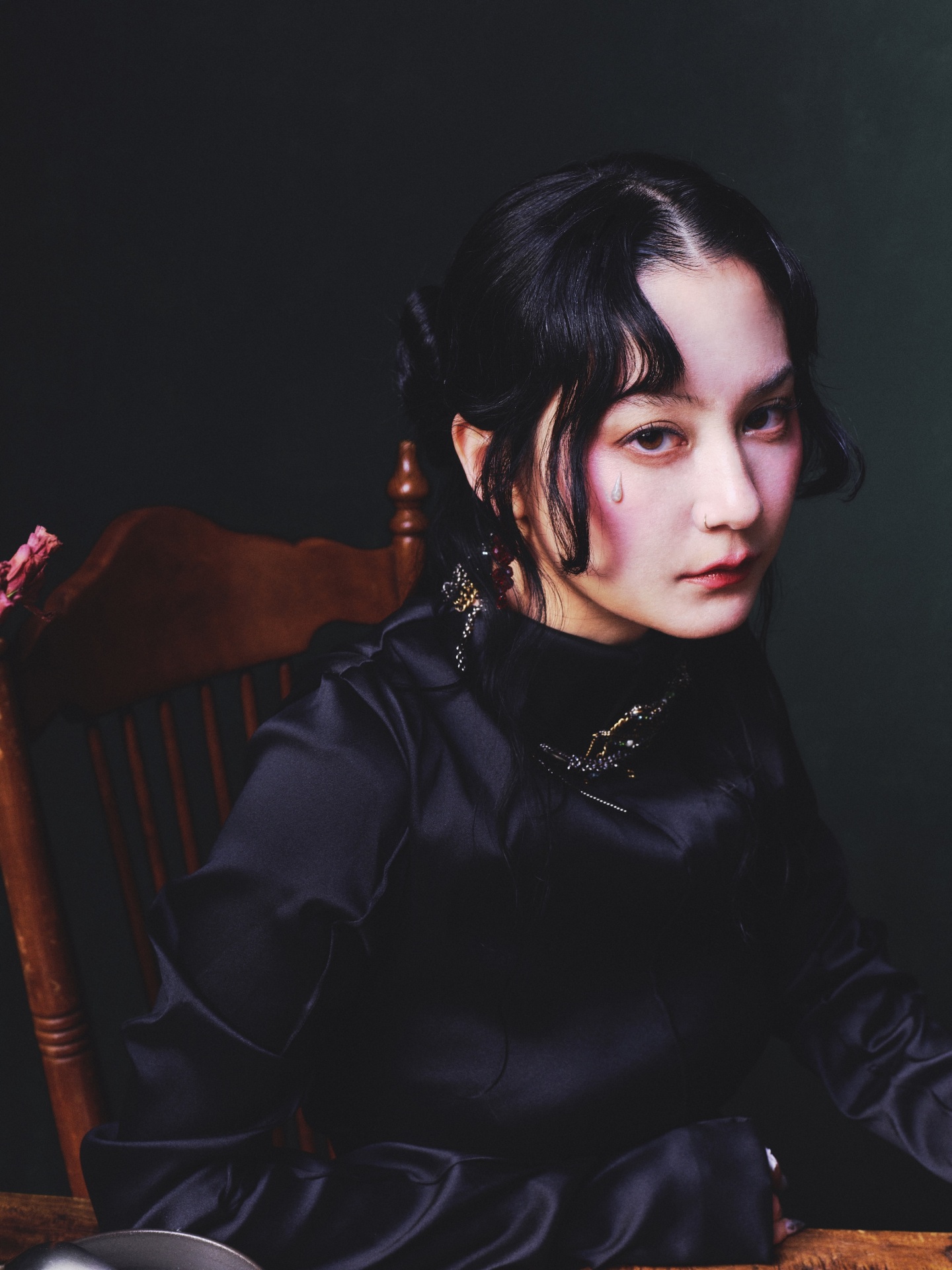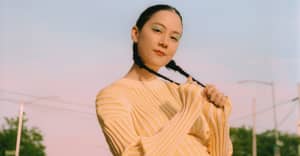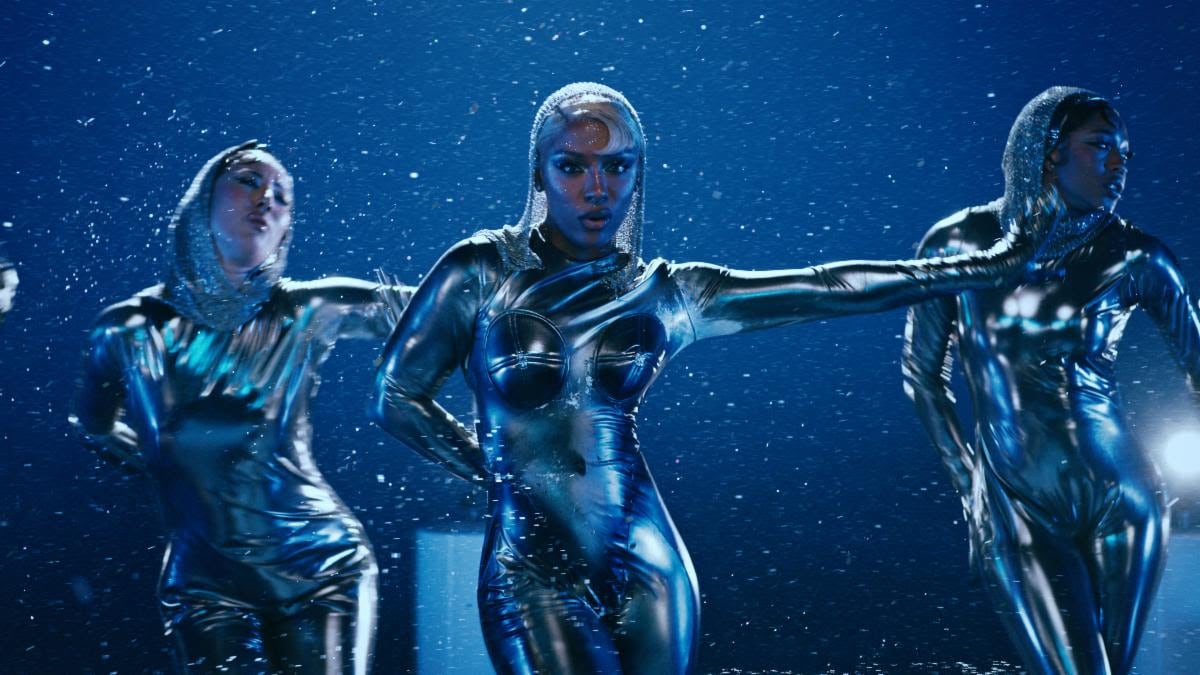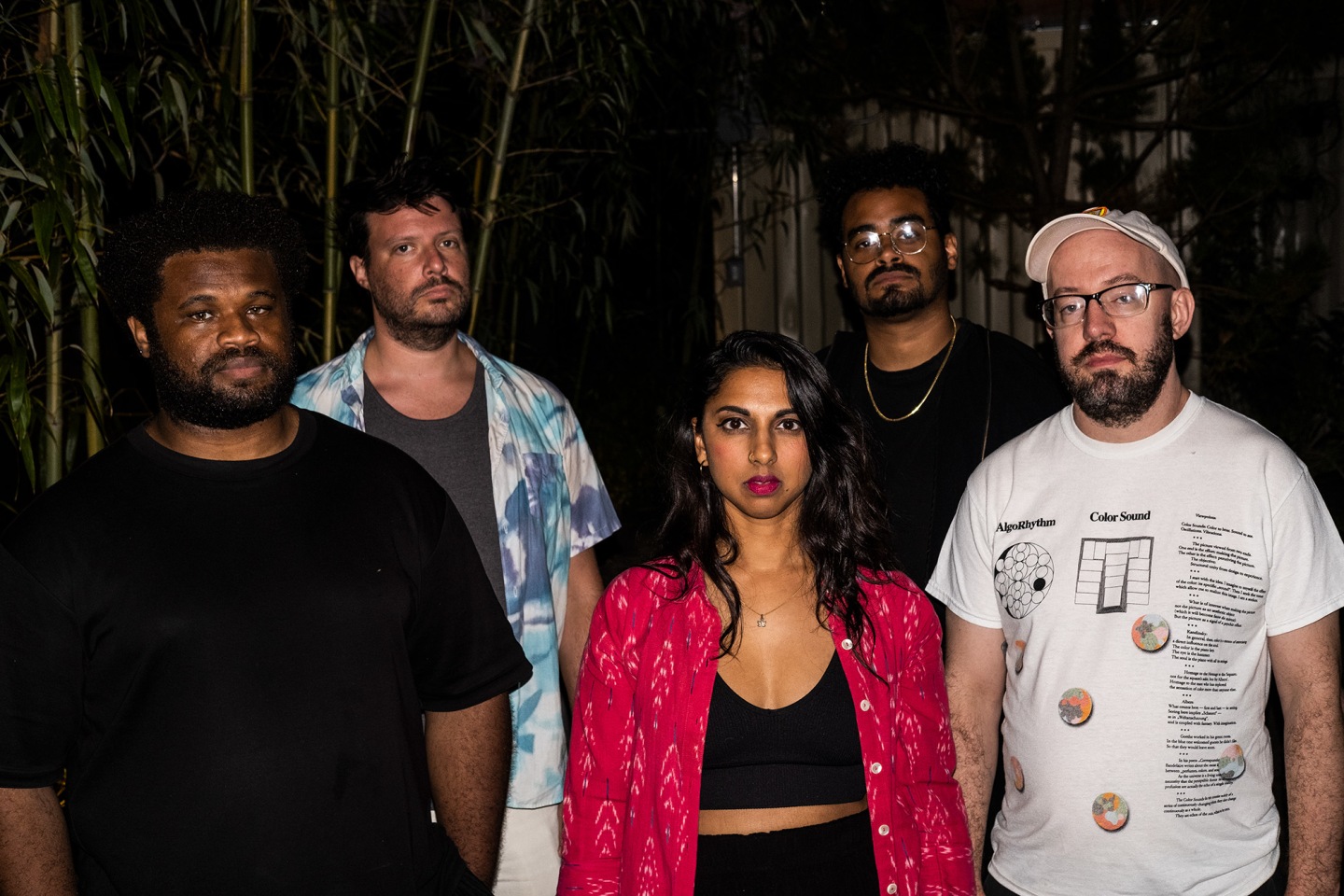For Melancholy Brunettes (and sad women)”>
Photo by Pak Bae
Like with any great conceptual art, Japanese Breakfast’s ornate effort, For Melancholy Brunettes (and sad women), began with a mood board. In 2023, two years after the release of her last album Jubilee, the indie rock outfit’s Michelle Zauner started collecting the pieces that would shape the world of her new album. She searched out grand and misty paintings from German Romanticism artists like Eduard von Grützner and Caspar David Friedrich, and she read books. Lots of books.
Over the course of that year, Zauner diligently plowed through tomes like David Foster Wallace’s Infinite Jest (1,000+ pages), and Thomas Mann’s Magic Mountain (700+ pages). She read Emily Brontë’s Wuthering Heights and Charlotte Brontë’s Jane Eyre for the first time, and revisited Mary Shelley’s Frankenstein, her gothic primers. The list of literature diverges in genre and chronology, but what’s consistent are their stories of tragedy. Like that of these books, the characters of For Melancholy Brunettes — drunks, cheaters, and misogynist players — face existential questions and irreparable sorrow. And Zauner, whose storytelling is as vivid and succinct as ever, writes about them with a profound sense of wholeness toward their experiences. “There’s a lot of this record that’s really inspired by European romanticism,” she says. “It feels like a record that wants to take its time in the same way, that these texts require [time].”
Ahead, Zauner broke down the six books that most shaped the album, from its themes to the complicated characters spotlighted on songs like “Honey Water” and “Mega Circuit.” “I would like to believe that my record is like being with these people, what they’re going through, and what’s at hand,” she says.
Infinite Jest by David Foster Wallace
Michelle Zauner: “I started the year in 2023 with Infinite Jest, because I had a lot of time off in 2023 and was getting ready to write a new record and was inspired by things that would typically classify as falling under the “incel canon” umbrella. I guess I just wanted to understand this group of people, and why exactly they gravitate to certain types of art.
“It’s an extraordinary novel, about a family that goes by the Incandenzas, and the characters [are] all involved in this tennis school. The father made this art film that has this strange, mysterious psychological effect on anyone who watches it. It’s also next door to a halfway house, where there’s a number of character studies of different characters that are suffering from drugs. I wouldn’t compare my album to Infinite Jest, but the one thing it has in common in my mind are stories dealing with graphic, intense moments, human struggle, and loneliness. In my mind, the father on “Little Girl,” his hotel could be looking out on the mega circuit of the boys that are riding around in that song. There are all these borrowed ideas that make you feel like these are character studies of people part of a greater world.
“I was drawn to [the] quite difficult writing, and that’s what I wanted to do in my own work too. I really wanted to make something that maybe wasn’t for everybody, not intentionally, but I just wanted to make what I wanted to make.”
The Magic Mountain by Thomas Mann
“[This is] my husband’s favorite novel, and he’d been telling me I should read it for a long time. We were going to Switzerland, which is where it’s set, and on tour. It’s about a man that goes to visit his cousin in a sanatorium, and they have these kind of, questionable practices that are maybe just prolonging everyone’s illness, like you’re supposed to sit out on the balcony of your room to take in the air even when it’s really cold and all these people have fevers and they’re all getting worse because they’re sitting outside. I find this to be such an incredibly beautiful, visual book.
“There are so many great details, where they all wear camel hair blankets out on the balcony when they take their rest cure. [The song “Magic Mountain”] turned into something personal, envisioning myself within the details of this novel and comparing it to my life on tour. I think I was also quite preoccupied with motherhood and navigating the future of balancing my career and resenting my sex. As a working, touring person, the idea of taking a whole year off, or more, to have a child, is much more difficult for a woman than it is for a man. It’s a preoccupation I have as I’m getting older of what I will have to mourn when that happens and if that balance is even feasible or realistic and if that’s something I even want. I think that the song became a really beautiful melding of those two ideas.”
The World of Apples by John Cheever
“I picked up a book of his on a whim and it ended up finding its way into a lot of the songs. It’s where the title [of the album] comes from, and it’s also where I learned about Orlando Innamorato [the character that inspired “Orlando In Love”]. The poem called “Orlando Innamorato”, was 68.5 cantos and was unfinished because France invaded Italy. It’s very similar to how Magic Mountain ends, kind of unceremoniously and rooted in some very real external reality. All of these ideas culminated into the record. I’m surprised no one’s called this out [but] the record has a lot of fade outs, which is something that I’ve never done in any of my songs. But so much of the record is about the passage of time or moments that are going to continue going after we leave them, they all end with this sonic ellipsis.
“In a short story in [this] book, [Cheever] mentions a man who wants to sleep with other women and he’s fantasizing about the different women that he would sleep with and some of them are melancholy brunettes and some of them are sad women. That’s where I got the title of the album. It was a very fruitful book for me of new ideas I was exposed to that then turned into songs.”
“I was drawn to [the] quite difficult writing, and that’s what I wanted to do in my own work too.”
Jane Eyre by Charlotte Brontë & Wuthering Heights by Emily Brontë
“All three of these gothic novels, Jane Eyre, Wuthering Heights, and Frankenstein, are books that are just totally different than I was led to believe they would be. I don’t think a lot of people have read Jane Eyre. First of all, I think Jane Eyre is a far superior novel to Wuthering Heights. I think that Charlotte Brontë’s writing is much stronger than Emily Brontë’s. But I had a wonderful experience reading Jane Eyre and then was sort of let down by Wuthering Heights.
I don’t know if Wuthering Heights and Jane Eyre made a profound impact on this record beyond that was what I was reading to try to get me in the headspace of Gothic moors, you know. I am thinking sort of about the violent emotion of Heathcliff and the things that Cathy suffers as a result of that uncontrollable, masculine behavior. Maybe I was influenced by that.
For Jane Eyre, there is a real stoicism to her character. She’s a great literary protagonist and I find her to be quite muted and withholding, and yet you’re really bound to her and rooting for her, which makes me think of in my mind, my “Honey Water” protagonist who is enduring so much and coping with it, with this type of quiet rebellion.”
Frankenstein by Mary Shelley
“I don’t know a bunch about the discourse around Frankenstein, but it’s frequently seen through the lens of an artist that’s so consumed by his work, that he is punished for it. I think more than Wuthering Heights and Jane Eyre, that is the theme of my record. He ignores his friends and ignores his family and ignores his studies and can only see the creation of this monster. And then once he creates it, he realizes that he’s made a huge mistake, has ignored all the warning signs that brought him there, and is then haunted by it for the rest of his life.”





